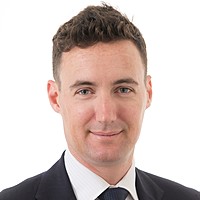How to become a 'Superforecaster'

Ellerston Capital
In January, we were reviewing the Fund numbers for the 2016-year-end and there looked to be an error: the percentage return for the year was higher than the dollar change in the Funds Under Management and didn’t reconcile. After scratching our heads, we realised what the issue was, and it wasn’t an error. More money had been redeemed at the low points of the market, and conversely, more money had flowed in at the high points of the year. This opens up a gap between the Fund's returns (% change) and the investors' returns (dollar change).
This is actually a well-known phenomenon within funds management and quite a few academic studies have shown this holds more generally over the years. In this piece by Friesen & Sapp (2007) the authors showed that retail investors switching in and out of funds wiped out any excess return that those funds actually earnt. And just to show you that so-called “sophisticated investors” aren’t immune to this behavioural problem, Dichev & Yu (2011) found the same result in hedge fund investors who are supposed to know better!
Why does this matter? Because changing investments at the wrong time, whether it be investments within a managed fund or single stock names, can wipe out a lot of profit, leaving the average investor much worse off.
Becoming a “SuperForecaster”
So how does one improve this behaviour? The short answer: write a diary/journal. I can hear the collective groan - “what - is that it? A diary!” But like a lot of things in life, the simplest things are often the hardest.
If you don’t believe me on it being the one tip, watch this video at the start to see Kerr Neilson giving his one big tip (we may not like the stock, but we always rated the man); or read the doyen of hedge funds giving a masterclass in real time trading of macro events from August 1985 to November 1986, via publishing his trade diary.
In fact, the documenting of your actions and more importantly, your planned actions, goes beyond finance and into other areas.
In “Superforecasting: The Art and Science of Prediction” by Philip Tetlock, Tetlock shows that certain “ordinary” individuals forecast events better than experts in many areas, even when they had access to less data than the experts. Tetlock was fascinated by these results and went back to each of them to see if he could find common characteristics across them. He found four traits:
- philosophic outlook,
- abilities and thinking style,
- method of forecasting, and
- work ethic.
Without going into everything in detail here, the findings that were noteworthy is that these “super-forecasters” whilst being above average in intelligence, were not all in the highest IQ category; that the ability to improve forecasting could be taught; and work ethic/discipline and constant questioning of prior views were the dominant features.
It means you can vastly improve your probability of success at forecasting by using a methodology and framework that incorporates updating their predictions and odds through time.
4 topics

Chad co-founded Morphic Asset Management in 2012. As a stock picker Chad is also a generalist but has strong regional knowledge of Europe and the Americas. He has also been awarded the CFA Charter.
Expertise

Chad co-founded Morphic Asset Management in 2012. As a stock picker Chad is also a generalist but has strong regional knowledge of Europe and the Americas. He has also been awarded the CFA Charter.
